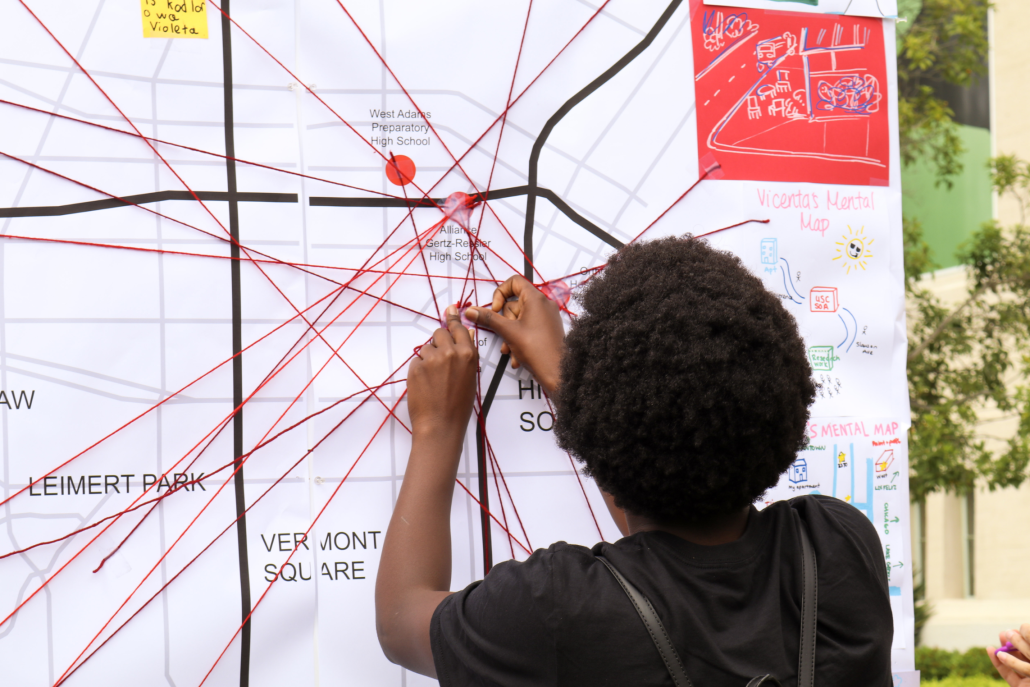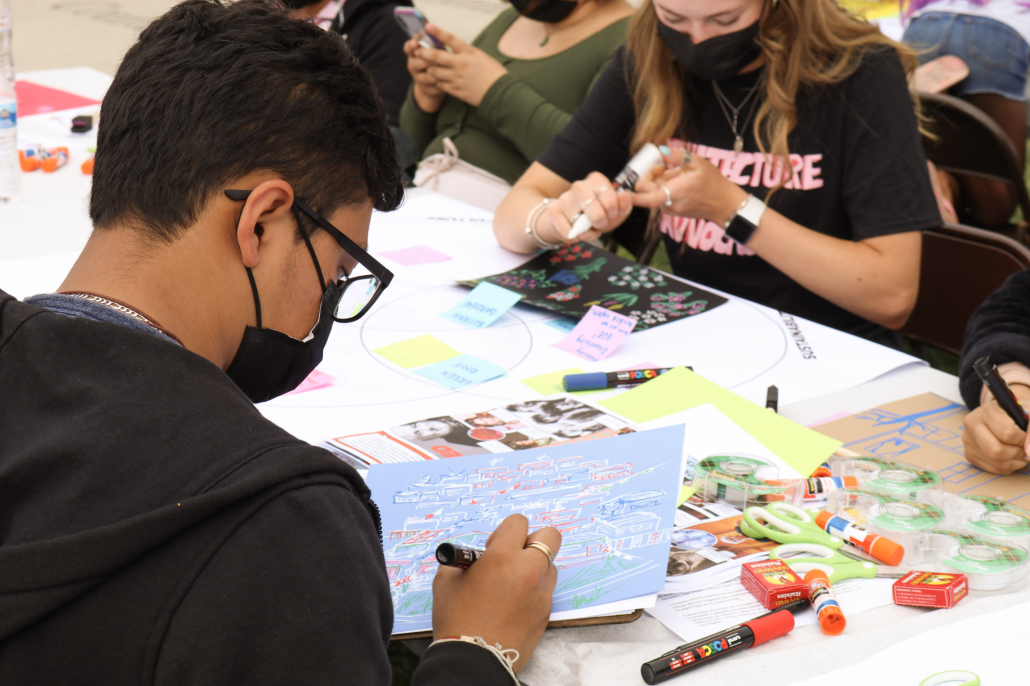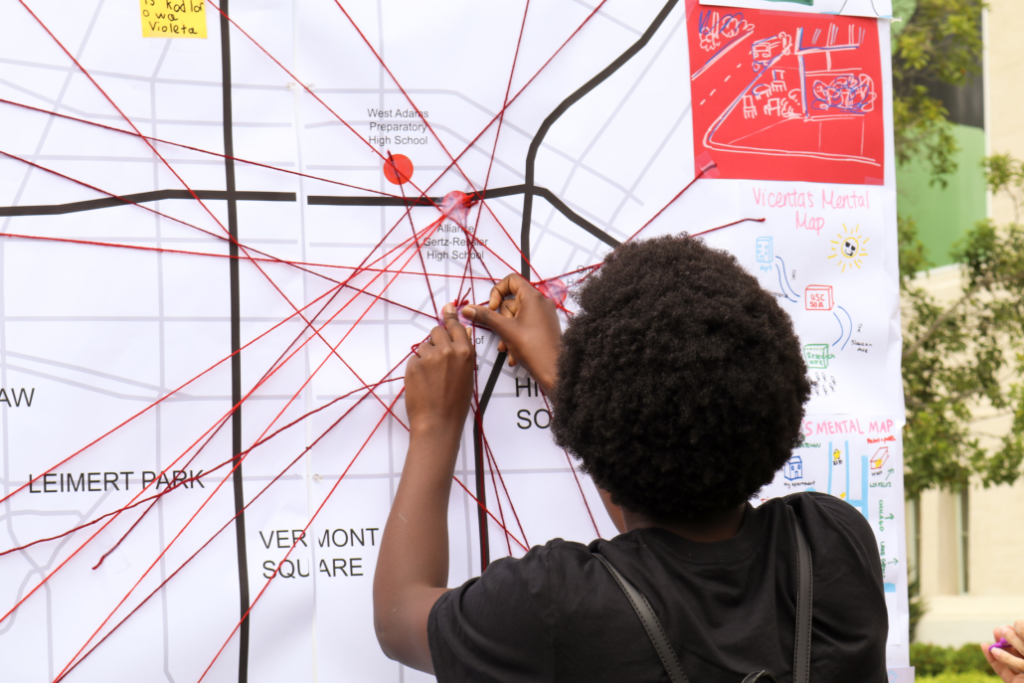[ad_1]

During a workshop led by USC student organization Architecture + Advocacy, high school students participated in an exercise to design spaces for their communities. Some thought up designs for soup kitchens and gardens — large structures that add value to the places where they live. A+A programming director and co-founder Lauren Jian was particularly struck by one student’s chief focus on designing an accessible public bathroom, which Jian said encompassed the organization’s vision: empowering students to create equitable communities and advocate for themselves.
Architecture + Advocacy provides cost-free design workshops for K-12 students aimed to encourage them to enter the architecture field and address design inequities in their local communities — to confront spatial injustice.
Co-founder Erin Light said spatial injustice involves looking at how architects have designed and created inequitable spaces. Issues such as food deserts and unequal school funding are the result of inequitable design, she said, which is why the zip code into which someone is born heavily shapes their access to opportunity and social mobility.
“We really want to empower people to take back a seat at the design table because for so long, excluding diverse voices from the position of architect has been used to disempower BIPOC and women and immigrant and LGBTQ — so many oppressed communities — and we really want to empower people with the design skills to change that,” Light, a fourth year architecture student, said.
The organization was initially started as part of the Comprehensive Diversity Initiative, a coalition of student leaders from the School of Architecture created in the aftermath of the 2020 protests against police brutality and racism. The coalition, which began as a discussion about actively combatting racism and discrimination against Black students, later submitted a statement to the school’s administration outlining demands and solutions to fostering diversity in the school.
A survey administered through the CDI showed architecture students wanted to feel more connected to the surrounding community and felt the school needed to take a more active role in addressing issues of gentrification and food insecurity, among others. A+A was founded in Spring 2021 to fill this desire and as a way to bring architectural resources to South Los Angeles.

Architecture workshops for high school students who want to study the field in college can be expensive and therefore inaccessible, said Jian, a fourth year architecture student. The organization’s high school-specific workshops range from one day to over one month, depending on the age group, and aim to introduce students to architecture concepts and let them take part in projects that address inequity in South L.A.
“I was very lucky in high school. I got scholarships in order to learn and then when I got to college, I wanted to make sure that other students like me would have access to this form of education,” Jian said.
The team is in the process of developing a five-week course that merges technical knowledge and real-world application through design-build. A+A is working with an exclusive partner on the course, coined “Build the Block,” which will aim to involve grass-roots community partners to create a tangible design outcome.
A+A typically partners with after-school programs — sometimes directly through schools and sometimes through other nonprofit programs. The organization has previously partnered with L.A. Commons, which develops community-based arts programming to engage cultural expression, and several L.A. Unified School District programs, including the GIFTED Network for African American Students and Families.
The organization brings in guest lecturers for students to present to — preparing them for critiques similar to what they would have to face in a post-secondary architecture program and encouraging them to develop their presentation skills.
“Architecture is so many things that make us feel powerful. Architecture is collaborative, reflective, narrative building, community building and a process for change, and we are at the forefront for that process to change,” said Cassius Palacio, a co-founder and second year architecture student.

The team hopes to expand its online curriculum and create more accessible material for people who may not be able to attend a workshop in person, and add fall programming. The organization also has a base in New York and looks to eventually expand to other cities on the East Coast.
In addition to the technical architecture skills that students learn through the program, Palacio said, participants come away with soft skills such as social and emotional learning, sustainability, community empowerment and civic engagement.
“We even had another 11th grader say that worrying about architecture made me change my whole mentality,” Palacio said. “I realized we could make not only South L.A. better, but also the whole world.”
[ad_2]
Source link
